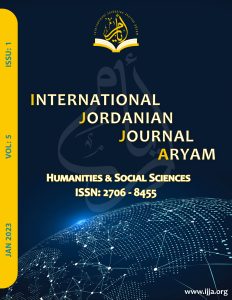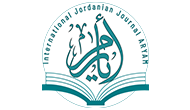Received: 18-6-2022 Revised: 04-09-2022 Accepted: 11-09-2022
Abstract: Since its inception, the various linguistic approaches have tried to get rid of the shortcomings. Each approach appeared to work beyond the negatives of the approach before it, to write more objectively and scientifically in approaching texts, which paved the way for the emergence of a science called text linguistics, which made the entire text a unit capable of analysis. One of the most important and first concepts with which the linguistics of text was concerned was the concept of harmony on which the ideas of the text are built, because it contributes to the cohesion and cohesion of the textual fabric, which is what was called the term “coherence,” and this is what made linguists interested in studying it, and they differ in their view of it. Talking about the mechanisms of harmony leads us to talk about the role of the reader and the interpretive effort he makes to link the parts of the text semantically, by gradually building into a comprehensive cognitive structure, the beginning of which is monitoring the hidden signs that make the text cohesive as units. The creative recipient has a major role in judging the harmony and interconnection of texts in particular. If the context in which this text came is prominent and known to the recipient, perhaps this is what draws our attention to the assumption that there are special conditions for the recipient of the letter. One of them is that he must possess qualifications that enable him to play the role of recipient. Textual scholars considered harmony a central concept in the field of text grammar and worked to control the mechanisms and laws that govern it, as harmony mechanisms operate at both the semantic and pragmatic levels. From this standpoint, we will try in this research to shed light on the aspects of textual harmony in the Algerian poetic poem and research its mechanisms and principles. We have chosen a model for application, which is the poem The Rising Sacrifice by the poet of the revolution, “Mufdi Zakaria.”
Keywords: Harmony, principle of inclusion, semantic relationships, overall structure, contrast.
DOI: https://zenodo.org/records/10726095
IJJA is a Humanities and Social Sciences publishing journal committed towards providing a platform to outstanding scientists and researchers to exhibit their findings for the furtherance of Humanities and Social Sciences.
The International Jordanian Journal, Aryam Journal of Humanities and Social Sciences (IJJA) (ISSN print: 2710-3005), (ISSN Online: 2706 – 8455) welcomes high quality contributions investigating topics in the fields of Humanities and Social Sciences .
![42cd5crossreff[1]](https://aijj.org/wp-content/uploads/2023/04/42cd5crossreff1.jpg)
![6357copenaccsess[1]](https://aijj.org/wp-content/uploads/2023/04/6357copenaccsess1.png)
![97aa6road[1]](https://aijj.org/wp-content/uploads/2023/04/97aa6road1.jpg)

